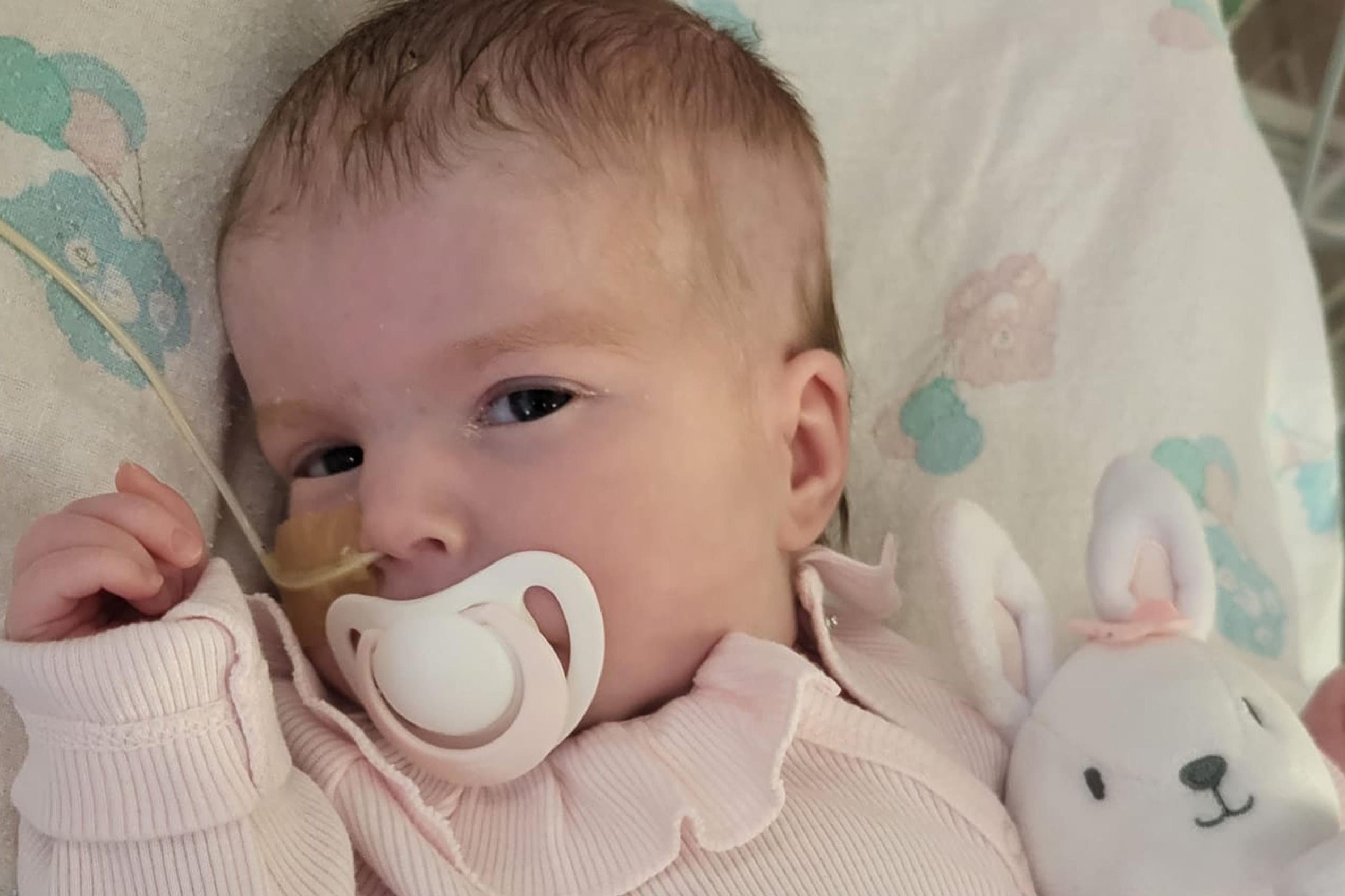Critically ill baby’s parents begin appeal and complain of ‘inadequate inquiry’
A High Court judge recently ruled that doctors could lawfully limit the treatment they provide to Indi Gregory – against her family’s wishes.

The parents of a critically ill baby have begun an appeal after losing a High Court life-support treatment fight – and complained about an “inadequate inquiry”.
A High Court judge recently ruled that doctors could lawfully limit the treatment they provide to Indi Gregory – who will be eight months old on Tuesday – against the wishes of her parents, Dean Gregory and Claire Staniforth.
Mr Justice Peel heard evidence about Indi’s condition at a private trial in the Family Division of the High Court, in London.
Indi’s parents, who are both in their 30s and from Ilkeston, Derbyshire, have challenged Mr Justice Peel’s ruling.
The depth of the inquiry carried out by (Mr Justice Peel) into Indi’s medical situation was inadequate to decide a matter of life and death
Two appeal judges are considering arguments, at a Court of Appeal hearing, at the Royal Courts of Justice, in London.
“The depth of the inquiry carried out by (Mr Justice Peel) into Indi’s medical situation was inadequate to decide a matter of life and death,” barrister Bruno Quintavalle, who represented Indi’s parents, told Lady Justice King and Lord Justice Birss.
“It is well established in the common law that whenever the right to life is at stake, the courts must apply ‘anxious scrutiny’.”
He added: “It is submitted that in this case, the court set the evidential bar too low.”
Indi’s parents, who are being supported by campaign group the Christian Legal Centre, said on Monday, outside court, that they were “devastated” by Mr Justice Peel’s decision.
Mr Gregory added in a statement issued through the Christian Legal Centre: “I, and we as a family, are prepared to do whatever it takes to fight for the life of our beautiful daughter, Indi.”
Mr Justice Peel heard that Indi, who was born on February 24 2023, has mitochondrial disease, a genetic condition that saps energy, and is being treated at the Queen’s Medical Centre in Nottingham.
Specialists say she is dying and bosses at the hospital’s governing trust asked Mr Justice Peel to rule that doctors could lawfully limit treatment provided to her.
Barrister Emma Sutton KC, who led Nottingham University Hospitals NHS Foundation Trust’s legal team, told Mr Justice Peel that Indi was critically ill and had an exceptionally rare and devastating neurometabolic disorder.
She said the treatment Indi received caused pain and was futile.
Her parents disagree.
Mr Justice Peel considered evidence behind closed doors, but he allowed journalists to attend the hearing and ruled that Indi, her parents and the hospital could be named in reports.
He ruled that medics treating Indi and a guardian appointed to represent her interests could not be named.
Appeal judges oversaw the appeal hearing in public but ruled that medics and the guardian could not be named in reports.
Mr Quintavalle outlined Indi’s parents’ complaints in a written case outline.
He said the High Court trial had been “procedurally unfair” and complained that Mr Justice Peel had refused to give Indi’s parents an “effective opportunity” to obtain expert medical evidence of their own.
